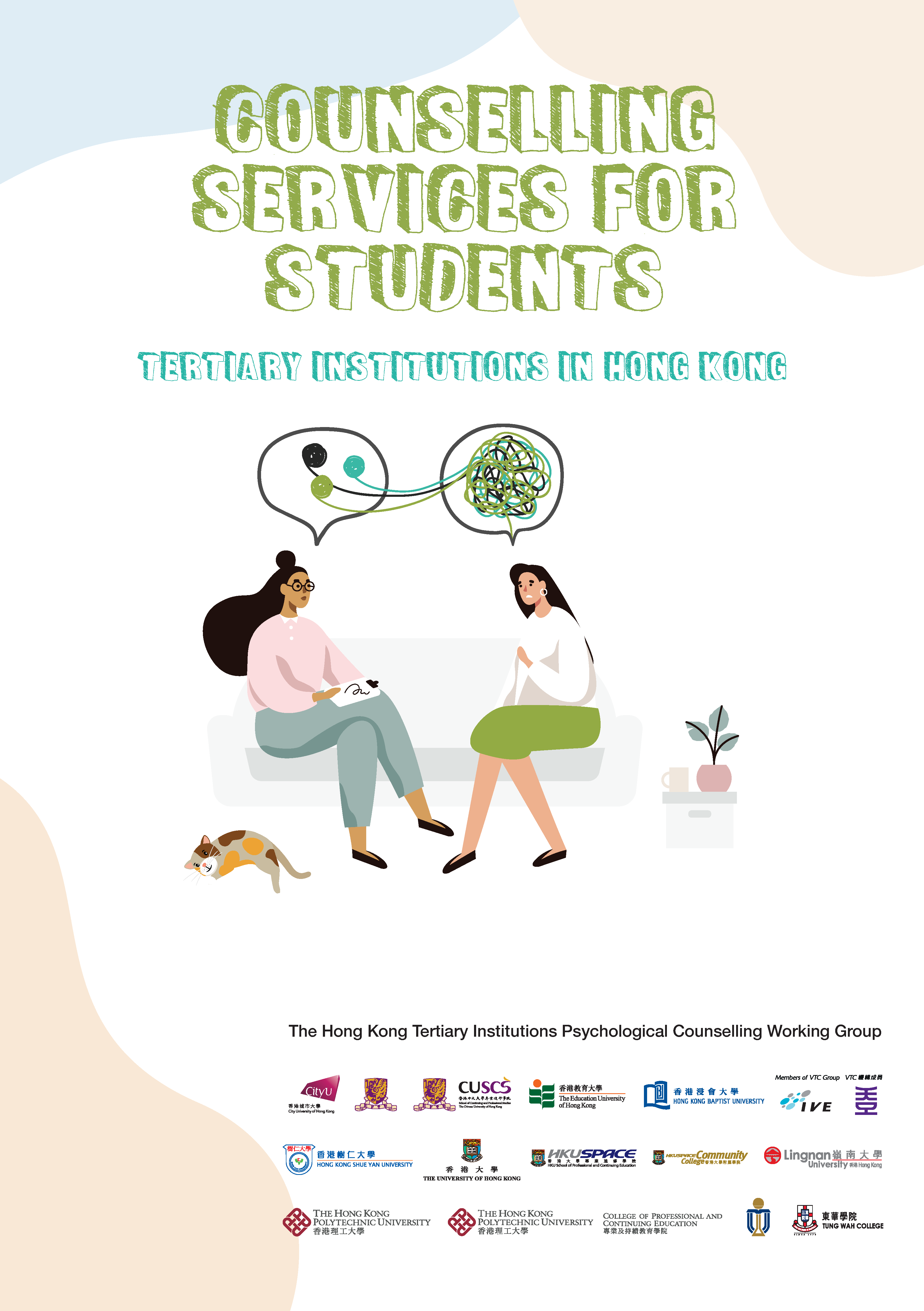Skills for Help & Refer


We all have the capacity to care for and support each other. You can also contribute profoundly to the formation of a caring and supportive environment.
You may have been asking yourself… how can I approach someone who is feeling low? How can I be supportive? Does he/ she need professional help? How should I encourage him/ her to seek counselling?
Here are some tips and a handbook for talking to and helping someone you are concerned about:

Approach
- Choose a suitable time and place you both feel comfortable where there will be enough privacy and no interruptions to talk.
- Speak honestly about your concerns. Let the person know you are concerned about them and are willing to help.
Listen
- Listen attentively with respect.
- Listen to and acknowledge the person’s distress before expressing your opinions.
- Reflect back what you believe the person is saying to make him/ her feel heard.
If you want to learn more about empathic listening and communication, you may take our eCourse and Mental Health First Aid certificate course.
Refer
Although it is good to support others, a referral for counselling should be considered when the person's problems go beyond your own experience, or when you feel he/ she needs more help than you can offer.
- Introduce the topic of counselling by saying something like “You sound very upset about your study problems. There are other students who felt similarly have been helped by talking to a counsellor. How would you feel about that?” or “I am here to help and support, but I think that counselling can benefit you more than what I can offer. In any case, I am still here to listen when you need it.”
- Give the person information about the Centre and urge him/ her to call to schedule an appointment with a counsellor.
- If that person does not feel like making the call for whatever reason, offer to schedule an appointment for him/ her with his/ her consent. You may even accompany him/ her to the Centre if necessary.
- If the person is still reluctant to seek professional consultation, try to explore his/ her difficulties and discuss the situation with a counsellor without disclosing the person’s identity. It is important to address the person’s concerns so that he/ she really wants help. Forcing someone to go to counselling is not likely to have positive results in counselling. Unless there is some immediate concern about his/ her well-being, it is better to try to maintain your relationship with him/ her and bring up the idea again later.
You are always welcome to discuss with our counsellors when you are uncertain whether someone needs professional help, or how to refer that person to counselling.
Follow-up
- You may take time to follow-up with that person to let him/ her know that you are still there to support. It could take a long journey to resolve issues and he/ she could benefit from your support along the way.
- In case you are interested in knowing about the progress or whether the person has made contact with a counsellor, ask the person directly. Counsellors have to adhere strictly to ethical and legal parameters of confidentiality. Therefore, information or content of counselling sessions cannot be released without the client’s signed consent. However, you may provide the counsellor with important information about the person since you are not bound by the same obligation of confidentiality.
Self-care
We all have our own needs and limitation. You may feel exhausted or overwhelmed while supporting others. It is important for you to acknowledge your needs and take time to look after yourself, so that you will still be able to support people you care in the long run.
If you are interested in learning more about identifying and supporting people with mental health problems, you may take our Mental Health First Aid Standard Course.
Remember, if at any point you are unsure of what you should do, our counsellors are here to offer you support and advice.
5 Powerful Communication Tips for Parents
Do you find it more challenging to communicate with your sons/daughters since they have become university students? Here come some tips on communicating with them for maintaining a healthy connection with trust and respect, and letting them know that you care.
1. Ask in a way they know you care.
Bring up topics specific in university to show them you know and you care.Try asking open-ended questions like:
“How is your time table this semester?”
“Tell me more about your favorite/ least-favorite course.”
“How are you spending your time outside classroom?”
“What clubs and committees are there? Which one do you like the most?”
“Let’s talk about that roommate/ groupmate of yours.”
2. Listen in a way they will share.
Listen attentively to their concerns without judging — even if you don’t agree. They may test you by telling you a small part of what is bothering them first. Listen to their feelings and inner needs and they will share more.
3. Respond in a way they will listen.
Soften strong reactions or they may tune you out. Always share your good intention behind your opinion. Accept that they can have their own opinions. Use your humor wisely can relieve tension.
4. Coach in a way they will learn.
Be a coach but not a problem solver for them. Share your experience only for their reference. Acknowledge their feelings. Assure their strengths and encourage them to consult different parties including senior year peers, faculty members and relevant professionals. Pay attention to the resources available at the university so that you can be an informed coach.
5. Respect in a way they will have space for growth.
Let them make their own decisions, although their choices may contradict your wishes/ ideals. Explore with them the consequences of their decisions and empower them to be responsible for themselves.
Introducing counselling services to students in need. Please click HERE or the handbook below to view.

